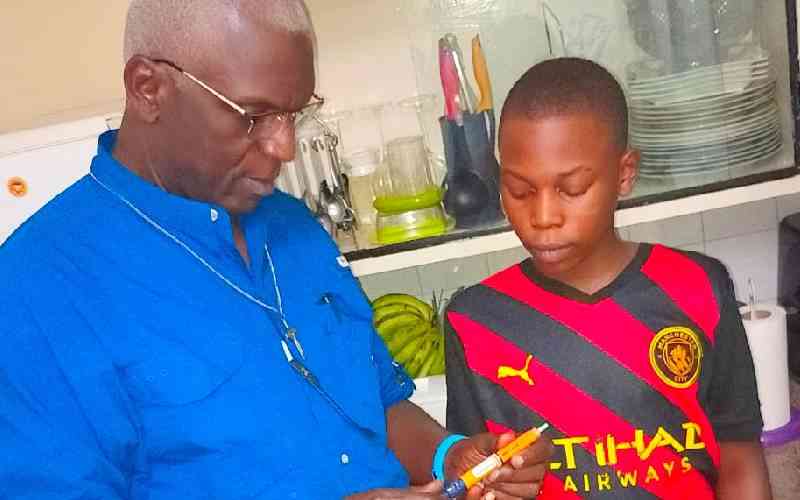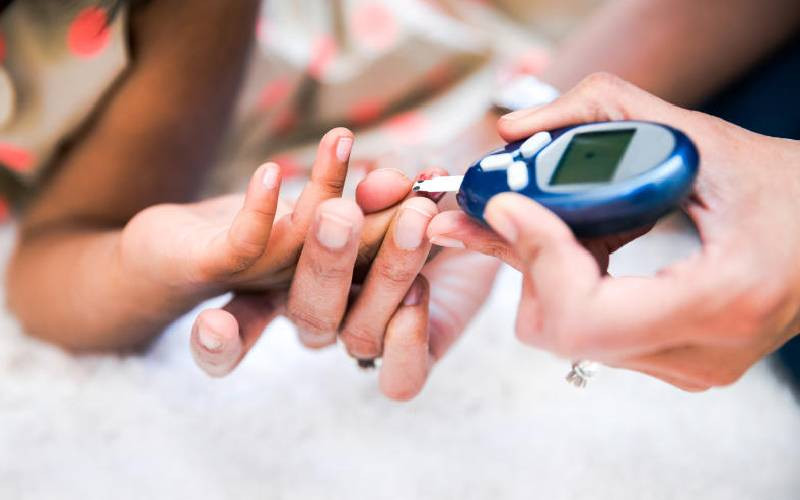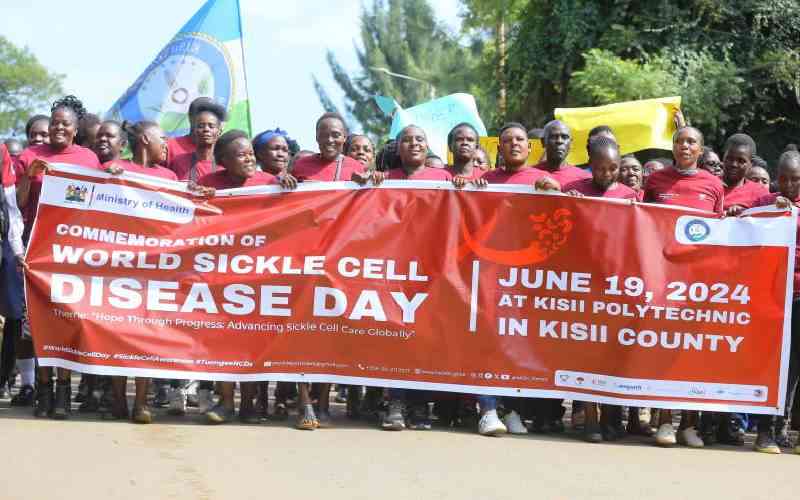
Kenya is grappling with a critical shortage of obstetric drapes, vital tools used to detect excessive bleeding after childbirth, putting thousands of mothers at heightened risk.
Dr Kireki Omanwa, President of the Kenya Obstetrical and Gynaecological Society (Kogs), confirmed that the shortage has been reported across the country, forcing health workers to revert to outdated and inaccurate methods to estimate blood loss.
Obstetric drapes are essential in quickly identifying postpartum haemorrhage (PPH), a leading cause of maternal mortality. They help clinicians measure blood loss during delivery, enabling swift interventions such as blood transfusions. PPH is defined as blood loss exceeding 500ml in vaginal births or 1,000ml in Caesarean sections.
“Drapes are not available everywhere. Doctors are now forced to use their hands to estimate blood loss, a method that is both ineffective and risky,” said Dr Omanwa, a consultant obstetrician and fertility specialist.
On average, Kenya loses 21 women daily due to child birth, with at least 10 of those deaths attributed to postpartum haemorrhage (excessive bleeding). The maternal mortality rate stands at 355 deaths per 100,000 live births, translating to 6,000 to 8,000 preventable deaths annually.
To address the crisis, Kogs is collaborating with the Clinton Health Access Initiative (Chai) and the Kenya Medical Supplies Authority to procure more drapes.
“Though we are engaging Chai, the supply of these vital tools requires funding,” said the expert.
- Africa urged to invest in data to curb maternal deaths
- Understanding infertility: The myths and misconceptions
- Silent killer: Postpartum bleeding still claims ten mothers every day
- Unpacking male contraception: Why men should embrace family planning
Keep Reading
Kogs, alongside the University of Nairobi and the Midwives Association of Kenya, is also running advocacy, training and research campaigns, including Run for Her, to raise awareness and resources.
The initiative promotes regular blood donation, stressing the urgency of having blood readily available in maternity wards.
“When a woman is bleeding, we don’t have time to mobilise blood, it must already be there,” said Dr Omanwa.
Prof Moses Obimbo from the University of Nairobi stressed the importance of reliable medical supplies, to guarantee safety of mother before and after birth.
Prof Anne-Beatrice Kihara, President of the International Federation of Obstetrics and Gynaecology maintained that domestic funding will boost maternal and child health.
Contrary to Kenya and African states, she said high developed countries report minimal maternal deaths.
“Mothers are hardly dying in developed countries, to get 10 out of 100,000 is too much, yet in Africa it’s between 300 and 600 in some nations even 1,000 in 100,000,” said Prof Kihara.
She added, “We need to take ownership and leadership in addressing our health programmes. This means thinking seriously about domestic funding, through taxation, performance-based care, and promoting preventive and promotive health, even with the limited resources we have.”
 The Standard Group Plc is a multi-media organization with investments in media
platforms spanning newspaper print
operations, television, radio broadcasting, digital and online services. The
Standard Group is recognized as a
leading multi-media house in Kenya with a key influence in matters of national
and international interest.
The Standard Group Plc is a multi-media organization with investments in media
platforms spanning newspaper print
operations, television, radio broadcasting, digital and online services. The
Standard Group is recognized as a
leading multi-media house in Kenya with a key influence in matters of national
and international interest.











